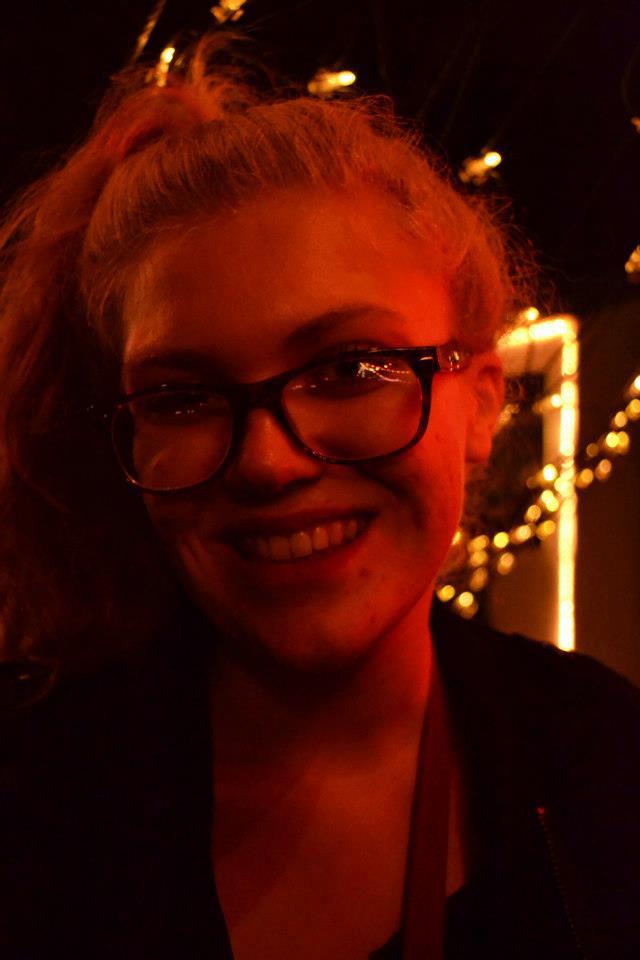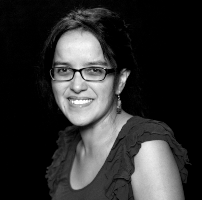 This post is by Melinda Guerra, Admin Assistant here at The Marin Foundation.
This post is by Melinda Guerra, Admin Assistant here at The Marin Foundation.
“The sooner you are dead the better.”
He couldn’t see her in the darkness, but there were plenty of faces he could remember from the old days which fitted the voice. When you visualized a man or woman carefully, you could always begin to feel pity… that was a quality God’s image carried with it… when you saw the lines at the corners of the eyes, the shape of the mouth, how the hair grew, it was impossible to hate. Hate was just a failure of the imagination.
— Graham Greene’s The Power and the Glory
I have to go ahead and confess that I am one of those lapsed Catholics (read: I haven’t called myself Catholic since, when I was 9, my family traded our CCD classes for AWANA. And a church service with drums.) finding myself pulled in by the words this new Pope speaks at interviews and press conferences. But I never quite cut the ties to my Catholic upbringing, and my affection for Catholic author Graham Greene has been one of the lasting threads of that tie.
In The Power and the Glory, which takes place in Mexico during the time Catholicism was outlawed there, Greene follows an alcoholic priest who wanders around, struggling with his own demons, saying mass, performing baptisms, and taking confessions. In the excerpt above, the priest (known throughout the novel as the whiskey priest) is in prison, having been caught with alcohol (also illegal). The woman who says to him The sooner you are dead, the better is a pious woman who was put in jail for having been caught with religious books in her home. The priest looks at her (in all the fuzz of a well-liquored evening) and struggles to see what they have in common, what their roles are to each other, what he has to offer her, how to avoid fully displaying the extent of his annoyance with her, why the hell he’s sitting near her and not near the actually broken people in the cell who realize they’re messed up and to whom he can offer the crumbs of a faith he still mostly believes in.
And that’s where he gives this piece, this hatred is just a failure of the imagination.
I’ve been thinking a lot these days about what it means to love, about these conversations of Love the sinner and hate the sin and of what it means to Engage the Other. I read these things my coworkers write, and I’m absolutely on board with them. But then I walk out of the office and I see the people it’s hard for me to love, and suddenly I find myself struggling against making the same excuses I see others give, justifying my foot-tapping and eye-rolling with well, at least I don’t hate them or anything.
And it’s an excuse that makes sense– I hear where it comes from, and I understand intimately the well-intentioned heart behind it.
But I think it sells me — and my neighbor — short.
So I keep coming back to this line spoken by an alcoholic priest who was messy and annoyed and broken, and I see the quiet call-to-something-better that resonates with my spirit: hate was just a failure of the imagination. And if hate was a failure, then my well, I don’t exactly hate them would follow as a failure, as well. And then I’m struck again with the reality that Jesus didn’t call us to not hate people. He called us to love them. And not just to love the people who are easy to love, because if you love those who are easy to love, so what? Love the people who are hard to love, the ones who drive you nuts.
I’ve been trying, recently, to live in that: to picture people carefully, to keep them from becoming the hate-speech-spewing monsters in my head, to give the benefit of the doubt to people who I’m still pretty sure wouldn’t hesitate to start a fight with me if they had a chance, to keep listening until I find even the smallest bit of truth or good in what the other person is saying, to visualize the person carefully until I begin again to see the created-in-the-Image-of-God human under all the stuff that so obscures the good from my eyes.
It’s not the easiest way to live– I find it exhausting and I still fail at it often. But I think my capacity to love is growing right alongside my imagination, and if I’m going to have a growth spurt at this age, I think that’s the place to have it.
Much love.











